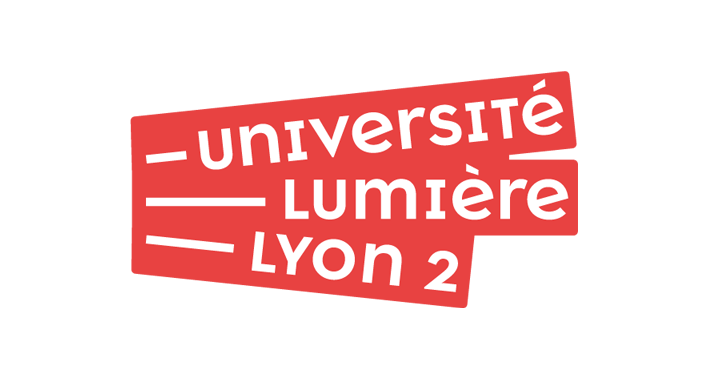| "Sharing subaltern knowledge through international cultural collaborations" (SHAKIN') is a European collaboration supported by the EU's Erasmus+ program: Strategic Higher Education Partnerships for Innovation.
The project brings together six partners from four countries (France, Germany, Serbia, Sweden): three universities (University Lumière Lyon 2, Bauhaus-University Weimar, University of Arts Belgrade) and three cultural organizations (Association Independent Cultural Scene Serbia, Stockholm Museum of Women’s History, le LABA), all of them being internationally recognised in their domain of activity. |
- News
- from 26 to 28 June 2023Last SHAKIN’ event in Belgrade
- on the 11 May 2023Looking back on our event in Stockholm
- on the 15 March 2023Recap of our event 'Work on the wild side!'
- from 13 to 17 March 2023Highlights of the Winter School in Lyon
- on the 3 February 2023SAVE THE DATE: Work on the Wild Side!
- from 10 to 14 October 2022Workshop in Weimar: Launch of the second year of experimentation with students
- from 14 to 17 July 2022First Shakin event in Weimar
- on the 12 July 2022the SHAKIN website and Handbook are online !
- from 15 to 19 March 2022Winter School in Lyon
- from 15 to 19 March 2022Impressions of the SHAKIN Winter School in Lyon
- from 11 to 16 October 2021Workshop in Belgrade
- from 17 March to 12 July 2021The project Shakin' is growing
- from 26 to 28 October 2020First SHAKIN’ Launching meeting
- on the 1 September 2020SHAKIN : New Erasmus+ project funded !
-
- Context
-
Market logic, populist policies, migrations and globalization, ecological transition or digital technologies affected the contexts of culture management, policy, research, and teaching in various tectonic ways over the last decades. But teaching and training in culture fields have largely maintained narrowly professional, nation-based assumptions of culture, politics, participation and education. As a result, learning processes are not just ill-fitting to provide relevant knowledge and “well-equipped” professionals, but are insensitive to excluded, marginalised and oppressed voices and life experiences of today.
- Objectives
-
SHAKIN’ pursued three interrelated objectives:
- Connecting academic and subaltern knowledges through sharing research methodologies in innovative forms of thinking, learning and teaching. We advocate for the constant imbrication of academic, artistic and subaltern knowledge, for the activation of critical theories in professional environments and the implementation of subaltern knowledge within academia. We impacted our existing curricula and developed training models for other institutions.
- Professionalising (post-graduate) students with new forms of cultural consciousness, nurtured by theoretical tools and endorsed by practical skills. We empowered all the participants and participating organisations by giving them action research skills and by supporting innovative ways of working with others, based on the idea of collective creativity.
- Supporting international cooperation through projects including subaltern perspectives. Culture professionals are growingly required to “go international”, at the risk of exoticism, depoliticization, standardization. We conversely promoted meaningful international projects that rely on mutual understanding, situatedness, specific expertise.
- Productions
-
The project resulted in four outputs:
1. WHO KNOWS?, an in-process digital handbook aiming to disseminate subaltern methodologies. The collected entries are structured through keywords and five “paths”:
(Un)framing knowledge, Inquiring, Cooperating with(in) arts and culture, Learning / Education from below, Remembering
2. SHAKIN’ THE CLASSROOM, a toolbox aiming to innovate the learning and teaching practice. The collected methods are sorted in nine ways of sharing knowledge: ludic, collective, poetic, processual, contextual, communing, experience-based, corporeal, othering
3. WORK ON THE WILD SIDE!, a platform that supports (young) professionals engaged in international projects with subaltern perspectives. We identified four primary needs (confidence, fragility, networking, solidarity) resulting in a set of resources, a mentoring guide, and the frame for an international mentoring program.
4. UNLEARN & RELEARN, an extra-curricular seminar bringing subaltern knowledge and cross-disciplinary themes absent from mainstream cultural management
programmes. The curriculum offers not only a possible frame for multi-topic seminar, but also guidelines for a meaningful implementation in various contexts.
During the three years of the project, we implemented various intertwined activities:
- Eight Transnational meetings
- Four Multiplier Events in Weimar, Germany (July 2022), Lyon, France (March 2023), Stockholm, Sweden (May 2023) and Belgrade, Serbia (June 2023), gathering more than 350 participants in total, and presenting all the outputs to a local and international audience of (young) professionals, students, academics, activists, artists
- Learning, training and teaching activities: Two groups of about forty participants attended in two editions (2021-2022 & 2022-2023) an international workshop (Belgrade, October 2021; Weimar, October 2022) and then an international Winter School (Lyon, March 2022 and March 2023)
- Four Intellectual Outputs in open access: a handbook, a toolbox, a platform and a curriculum (see above) - Impact
-
The processes, experience, relationships and insights developed, tested and disseminated throughout the project have contributed to
- the inclusion of subaltern knowledge in our academic, cultural, and teaching environments
- the diversification of knowledge sources and ways of working together
- the spreading of more open, inclusive and reflexive working environments in the culture and academic fields
- an increased awareness of difficulties and challenges of working in intercultural groups and methods to facilitate this kind of cooperation
Participants- Professionalising (post-graduate) students by giving them action research skills and by supporting innovative ways of working with others, based on the idea of collective creativity
- Increase of job opportunities
- Improvement of the participants’ language skills (English)
- Innovation of our existing curricula and development of training models for other institutions
- Solidification of the SHAKIN’ partnership as well as deeper and more frequent international collaborations between partners
- Cross-fertilisation of local and European projects
- Raising awareness of more in-depth ecological, political, social and technological perspectives
- Identification of the needs, political commitments and expectations that students or young professionals have from their sector and the inclusion of current phenomena in their professional activity
- Creation of a space for reflection on the political dimensions of work in arts and culture










